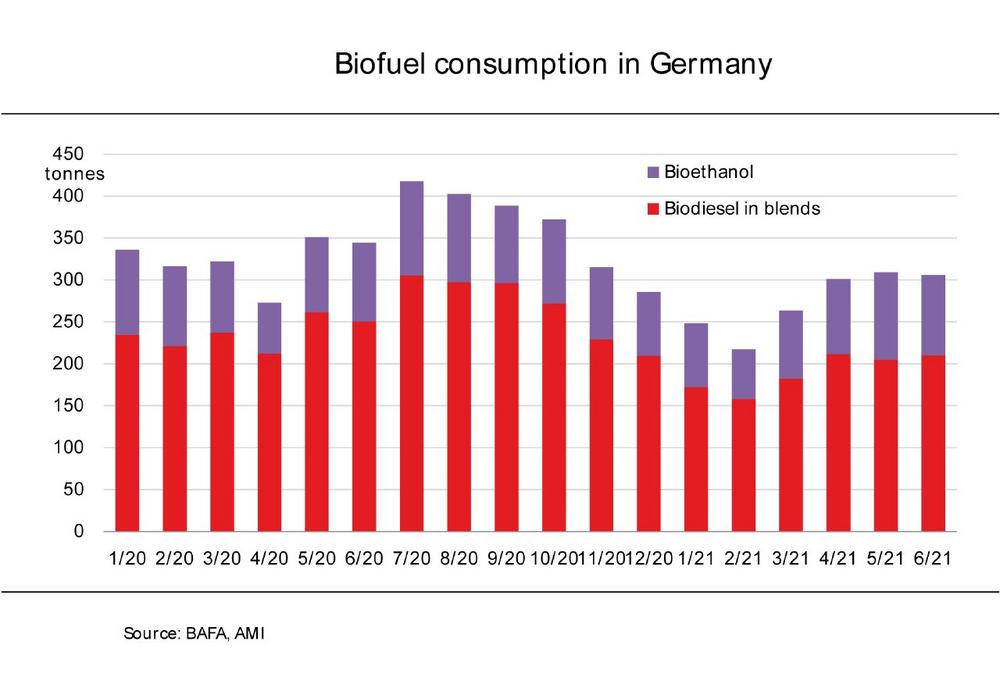In the first half of 2021, the use of biodiesel for blending amounted to around 1.14 million tonnes. This translates to a 19.6 per cent drop over 2020. If the trend in consumption were to continue along these lines in the second half of the year, the total use of biodiesel for blending would reach 2.4 million tonnes in 2021, according to calculations made by Agrarmarkt Informations-Gesellschaft (mbH). This figure compares to 3 million tonnes in 2020.
The Union zur Förderung von Oel- und Proteinpflanzen e. V. (UFOP) has pointed out that the quota years 2020 and 2021 are not comparable although mineral oil companies had and have to meet a greenhouse gas (GHG) reduction target of 6 per cent in both years. In 2020, all EU member states were required to implement the 6 per cent GHG reduction target in accordance with European Fuel Quality Directive regulations. However, quotas could not be carried over from the 2020 obligation year, but they can be brought forward again in 2021. The UFOP expects that the possibility to carry GHG quotas over will curb demand for biodiesel this year.
The UFOP finds it difficult to make a final assessment of how biodiesel use is going to develop in 2021, because the GHG reduction target will be raised to 7 per cent in 2022 and diesel consumption will tend to decline as a result of increasing e-mobility. State funding of e-mobility will first and foremost lead to a reduction in the number of diesel passenger cars. Against this background, the level of GHG reduction quotas that will be defined for the 2022 quota year as part of the RED II implementation is of importance for the exports of the German biodiesel industry. The time pressure for climate protection is strong. The increasingly smaller residual budget for GHG emissions permitted until 2030 also clearly illustrates the need to act. Consequently, the GHG mitigation potential of certified biofuels should be used as the EU’s contribution towards meeting the 1.5 degree target in 2030.
The Union for the Promotion of Oil and Protein Plants e. V. (UFOP) represents the political interests of companies, associations and institutions involved in the production, processing and marketing of domestic oil and protein plants in national and international bodies. UFOP supports research to optimise agricultural production and for the development of new recycling opportunities in the food, non-food and feed sectors. UFOP public relations aim to promote the marketing of domestic oil and protein plant end products.
UFOP – Union zur Förderung von Oel- und Proteinpflanzen e.V.
Claire-Waldoff-Str. 7
10117 Berlin
Telefon: +49 (30) 2359799-40
Telefax: +49 (30) 2359799-99
http://www.ufop.de
Telefon: +49 (30) 31904-225
E-Mail: s.arens@ufop.de
Union zur Förderung von Oel- und Proteinpflanzen e
Telefon: +49 (30) 31904-434
Fax: +49 (30) 31904-485
E-Mail: m.leonhard@ufop.de
![]()
